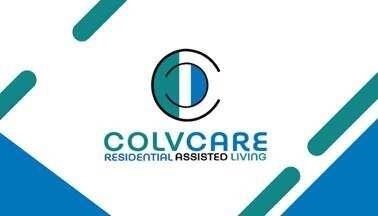Finding the Perfect Residential Assisted Living for Your Loved Ones
Understanding Residential Assisted Living
Residential assisted living is a specialized housing option designed to support older adults who need help with daily living activities but do not require the intensive medical care provided in a nursing home. These facilities offer a blend of housing, personalized support services, and healthcare designed to respond to individual needs. Understanding residential assisted living is crucial for families considering this option for their elderly loved ones.
One of the primary benefits of residential assisted living is the range of services available. These typically include assistance with everyday tasks such as bathing, dressing, and medication management. Additionally, many facilities offer medical care services, which can range from regular health check-ups to more specialized care like physical therapy. These services ensure that residents receive the appropriate level of care in a safe and supportive environment.
Social activities are another key component of residential assisted living. Facilities often provide various recreational and social engagement opportunities, which are essential for maintaining the mental and emotional well-being of residents. These activities can include group outings, fitness classes, arts and crafts, and social gatherings, all aimed at fostering a sense of community and belonging.
There are different types of assisted living communities catering to specific needs. For instance, memory care facilities are specially designed for individuals with Alzheimer’s or other forms of dementia. These communities offer enhanced security features and staff trained in managing memory-related conditions. On the other hand, some assisted living communities focus on promoting a more independent living experience, providing residents with greater autonomy while still offering necessary support services.
Overall, residential assisted living plays a vital role in providing a nurturing and safe environment for elderly family members. It bridges the gap between independent living and nursing home care, ensuring that seniors receive the appropriate level of support and medical care while maintaining their dignity and quality of life.
Tailoring Assisted Living Options to Your Needs and Budget
Finding the perfect residential assisted living facility for your loved ones is a multifaceted process that requires careful consideration of both their needs and your budget. The first step in this journey is conducting a comprehensive assessment of your loved one’s health care needs and personal preferences. This includes understanding their medical conditions, mobility limitations, dietary requirements, and social preferences. It’s also essential to consider their desire for independence versus the need for assistance with daily activities such as bathing, dressing, and medication management.
Once you have a clear understanding of these needs, the next step is to evaluate different facilities. Begin by researching potential facilities online and reading reviews. Schedule visits to the top choices to get a firsthand look at the environment. During visits, pay attention to the cleanliness, staff interactions, and the overall atmosphere. Engage with the staff and residents to ask questions about the level of care provided, staff-to-resident ratios, and the types of activities available. Additionally, inquire about the facility’s emergency protocols and how they handle medical situations.
Reviewing state inspection reports can provide invaluable insights into the facility’s compliance with health and safety regulations. These reports can often be found online through state health department websites and will highlight any past violations or areas of concern. This step ensures that you are making an informed decision based on the facility’s operational history.
Financial considerations are crucial in the selection process. Understanding the costs involved in residential assisted living, including monthly fees and additional charges for specialized services, will help you plan effectively. Explore payment options such as long-term care insurance, veterans benefits, and Medicaid. Engaging a financial advisor can also be beneficial in developing a sustainable plan for future expenses.
Professional placement services can be an invaluable resource in navigating these choices. These services have extensive knowledge of local facilities and can match your loved one’s needs with the most suitable living arrangements. By leveraging their expertise, you can streamline the selection process and ensure that you find a facility that provides the best care and comfort within your budget.
